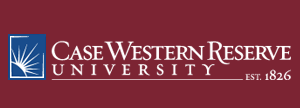
Thomas Teets, who graduated last spring with a degree in chemistry, was one of 15 students this year to receive a graduate fellowship from the Fannie and John Hertz Foundation. He has now begun his studies at the Massachusetts Institute of Technology.
The Hertz Foundation's mission is to identify and cultivate talent in the applied physical, biological, and engineering sciences. Hertz Fellows receive full, unrestricted support over five years, enabling them to pursue innovative research at any one of more than 40 leading universities. This year's fellows were selected from a field of 580 candidates.
In a letter to art/sci, Teets described his scientific work as an undergraduate and the evolution of his interests as he begins his career at MIT:
"I did undergraduate research with Thomas Gray, assistant professor of chemistry. My research with Dr. Gray focused on the preparation and characterization of transition metal complexes of tetraarylazadipyrromethenes; some of these compounds have potential use in photodynamic cancer therapy, a light-based cancer treatment. This work has led to a publication in Inorganic Chemistry, and a second paper is currently in the review process.
"I moved to Boston in early July to begin work in the laboratory of Daniel Nocera at MIT. My work in Nocera's lab is geared towards the preparation and study of bimetallic light-driven catalysts for the production of hydrogen gas from inorganic acids. Our group, in collaboration with several other labs around the country, aims to develop a means of hydrogen production that would lead to the use of hydrogen as a clean, sustainable fuel source. After Labor Day, I started coursework and a teaching assistantship at MIT, and in November I will officially join a research group for the duration of the Ph.D. program."
Since 1963, the Hertz Foundation has awarded more than 1,000 graduate fellowships, investing (in current dollars) more than $100 million. In addition to financial support, the foundation states that it provides mentoring, organizes symposia, and helps sustain a peer network through which fellows can "share ideas and explore opportunities throughout their careers."
